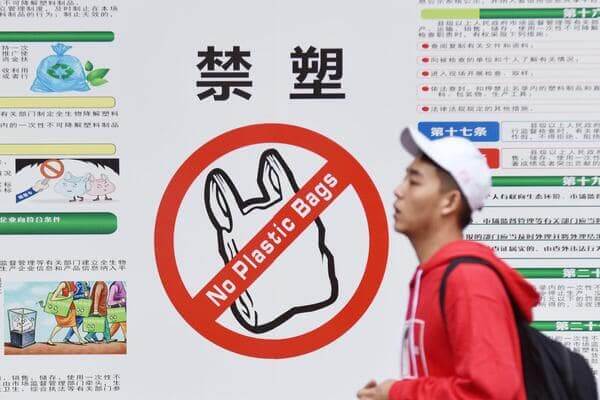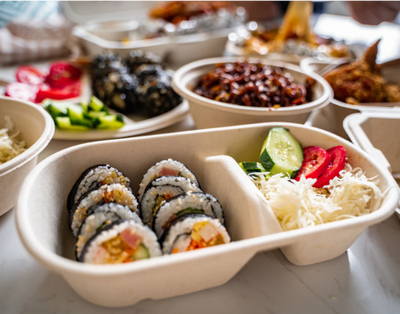The fight against plastic pollution has reached a critical turning point. What began as scattered efforts in a handful of countries has transformed into a powerful global initiative. As of 2025, more than 90 nations have implemented partial or complete bans on single-use plastics, signaling a profound shift in the way we consume and produce. From plastic straws to shopping bags, governments, businesses, and individuals are waking up to the urgent need for change.
But plastic bans aren’t just about regulation—they’re about reshaping habits, business models, and consumer expectations. This article explores the driving forces behind this global movement, the regions leading the charge, and what the future holds for both businesses and everyday people.
The Environmental Urgency
The statistics surrounding plastic pollution are sobering:
-
11 million metric tons of plastic enter the ocean each year. If trends continue, this number could triple by 2040.
-
More than 1 million seabirds and 100,000 marine mammals die annually due to plastic ingestion or entanglement.
-
Microplastics—tiny fragments less than 5mm in size—have been detected in 98% of bottled water and even in human bloodstreams, raising alarming health concerns.
Plastic doesn’t disappear. A plastic bag used for just a few minutes can take up to 500 years to decompose, breaking down into smaller and smaller particles that infiltrate ecosystems and food chains.
This environmental urgency has become impossible to ignore. Citizens are demanding action, and governments are responding with plastic bans as a critical first step. These bans aim to cut down the flow of non-recyclable plastics, reduce landfill pressure, and encourage industries to innovate sustainable alternatives.
A Roll Call of Global Action
The momentum of plastic bans is spreading worldwide, with some countries becoming shining examples of bold leadership:
-
Rwanda: Often called the “cleanest country in Africa,” Rwanda banned plastic bags in 2008. Today, Kigali’s streets are a model of plastic-free living.
-
Kenya: Known for one of the strictest bans in the world, Kenya imposed heavy fines and even jail time for producing or using plastic bags, significantly cutting down on pollution.
-
European Union: In 2019, the EU passed a directive banning common single-use plastics such as straws, cutlery, plates, and cotton buds. By 2021, member states had begun phasing them out.
-
India: With ambitious targets, India has been rolling out restrictions on single-use items nationwide.
-
Canada & Australia: Both countries have announced nationwide bans on problematic plastics, including checkout bags, cutlery, and stir sticks.
Most of these bans target items that are highly visible, frequently littered, and difficult to recycle, such as:
-
Plastic straws
-
Cutlery and plates
-
Polystyrene foam containers
-
Shopping bags
-
Beverage stirrers
These everyday conveniences may seem small, but collectively they represent millions of tons of unnecessary waste.
The Global Plastic Treaty
While national and regional bans are powerful, the plastic problem is inherently global. Plastics don’t respect borders—rivers carry them across countries, and ocean currents scatter them worldwide. That’s why international cooperation is crucial.
The United Nations is currently working toward a Global Plastic Treaty, which could become one of the most significant environmental agreements in history. The treaty, still under negotiation, aims to:
-
Establish legally binding limits on plastic production.
-
Set standards for plastic waste management and recycling.
-
Create accountability mechanisms for countries and corporations.
-
Promote innovation in sustainable packaging and alternatives.
If successful, this treaty would provide a unified framework for tackling plastic pollution—similar in impact to the Paris Agreement for climate change. It’s a clear signal that plastic bans are not isolated efforts but part of a growing global consensus that urgent, coordinated action is required.
Business Beyond Plastic
For businesses, plastic bans may feel like a challenge at first—but they also represent a golden opportunity. Companies that adapt quickly are not just complying with regulations; they’re meeting consumer demand and positioning themselves as leaders in sustainability.
Why going beyond plastic makes business sense:
-
Consumer Preference: Studies show more than 70% of shoppers prefer eco-friendly products, even at a higher cost.
-
Brand Loyalty: Businesses that embrace sustainability build stronger emotional connections with their customers.
-
Operational Resilience: Reducing reliance on plastic mitigates risk as bans expand and plastic costs rise.
-
Innovation Potential: Many businesses are finding creative ways to reduce packaging, offer refill systems, or explore biodegradable materials.
For example, EQUO is helping businesses thrive in this new landscape with a wide range of plant-based alternatives—from compostable straws and utensils to biodegradable food packaging. These solutions not only comply with global bans but also appeal to eco-conscious consumers who want to support brands doing the right thing.
In fact, many cafés, restaurants, and retailers are discovering that offering compostable straws or packaging doesn’t just prevent penalties; it enhances their brand identity as sustainable pioneers.
Your Role in a Plastic-Free World
While governments and businesses play huge roles, individual choices matter too. Each consumer action sends a signal to the market about what products and practices deserve to thrive.
Here’s how you can support the momentum:
-
Carry reusables – Bring your own cup, straw, and bag whenever you go out.
-
Support plastic-free businesses – Choose restaurants, shops, and brands that embrace eco-friendly alternatives.
-
Make simple swaps – Replace everyday items with compostable or biodegradable versions, like EQUO’s sugarcane utensils or coffee-ground straws.
-
Stay informed – Awareness drives action. Follow updates on plastic bans and treaties to understand how your region is evolving.
-
Advocate and educate – Encourage friends, family, and local businesses to embrace plastic-free practices.
Remember: every purchase is a vote. By supporting sustainable products and businesses, you’re helping accelerate a global shift that benefits both people and the planet.
Conclusion: The Next Chapter
Plastic bans are more than just policies; they’re part of a global awakening to the urgent need for sustainable living. What started in Rwanda, Kenya, and the EU is now spreading across the globe, fueled by public demand, environmental urgency, and business innovation. With the upcoming Global Plastic Treaty, we are moving toward a unified strategy to curb plastic pollution once and for all.
As consumers and businesses adapt, the future looks less like a landfill and more like a circular economy—where waste is minimized, products are reused, and materials naturally return to the earth.
The momentum is undeniable, and the question is no longer if the world will move beyond single-use plastics, but how quickly. With innovative brands like EQUO offering accessible, stylish, and truly eco-friendly solutions, the path to a plastic-free world is clearer than ever.
So next time you sip your latte, carry a tote, or host a dinner party—know that small choices matter. Together, we’re shaping the future of consumption, one plastic-free step at a time.


